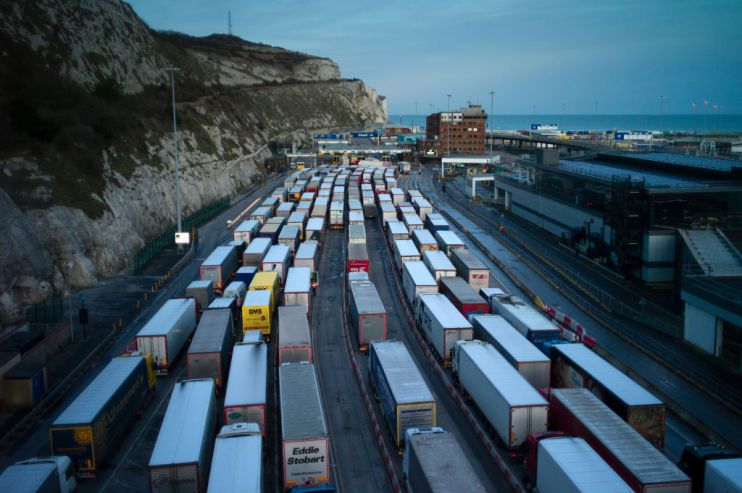Brexit border checks on food delayed for fifth time

The implementation of post-Brexit border checks on food products coming from the EU has been delayed for a fifth time, the government has confirmed.
The first stage of the UK’s new border model, originally set for October, is now delayed to January 2024, with physical checks and other requirements coming in over the next year.
It was confirmed as the Cabinet Office published its new “border target operating model”, which delineates the UK’s upcoming approach to safety and security controls on all imports, with a particular emphasis on goods like live animals, plants, and animal products.
The Cabinet Office said: “Having listened to the views of industry, the government has agreed to a delay of three months for the introduction of remaining sanitary and phytosanitary controls, as well as full customs controls for non-qualifying Northern Ireland goods, which will now be introduced from January 2024.
“To give stakeholders additional time to prepare for the new checks, further controls have a revised timetable.”
Goods from Britain have faced EU controls since it left the bloc’s single market at the start of 2021, but the UK has repeatedly put off checks in the other direction.
According to the revised timetable, starting from January 31, 2024, imports of medium-risk animal products, plants, plant products, and high-risk non-animal origin food (and feed) from the EU will require health certification.
By April 30, 2024, these items will undergo documentary, identity, and physical checks, while imports of sanitary and phytosanitary goods from other parts of the world will adopt a new risk-based approach.
From October 31, 2024, safety and security declarations for EU imports will become mandatory, along with a more streamlined dataset for imports.
The Cabinet Office said that in developing the new regime, the government has been mindful of the potential impact on inflation, with an estimated impact on headline inflation expected to stand at less than 0.2 per cent across three years.
Last week, the Financial Times reported the government chose to enact the extension as Chancellor Jeremy Hunt wanted to delay the costs associated with the post-Brexit checks, which would add to food bills.
Downing Street said the government has been “mindful of the impact of inflation” but signalled that there would be no more delays.
“Throughout this we have been mindful of the impact of inflation, but I am not aware of any plans to move beyond the dates we have set out,” the prime minister’s official spokesman said, adding: “We have been listening to businesses throughout.”
Cabinet Office minister Baroness Neville-Rolfe said on the new border model: “Our border target operating model will ensure more efficient trading for businesses, protect against biosecurity threats and further crack down on illegal imports such as firearms and drugs.”
William Bain, head of trade policy at the British Chambers of Commerce (BCC), said: “Businesses will be pleased with this clarity as they prepare for the challenging shift to a digital trade system.
“The critical thing is preparedness. Businesses are making investment and supply chain decisions for the long term and need to be confident that infrastructure is in place on time.”
Liberal Democrat Treasury and business spokesperson Sarah Olney said: “This humiliating U-turn is just the latest example of Conservative chaos.
“A hammer blow to shops and shoppers may have been avoided at the last minute, but the government should do more than just kick the can down the road.”
Labour’s shadow international trade secretary Nick Thomas-Symonds said: “Leaving major changes until so close to the implementation deadline is unacceptable. It is yet another example of the challenges businesses face due to Conservative economic mismanagement.
“The Tories’ failed trade policy is stunting our economic growth. Labour will turn this around as part of our mission to secure the highest sustained growth in the G7.”
Press Association – By Martina Bet
